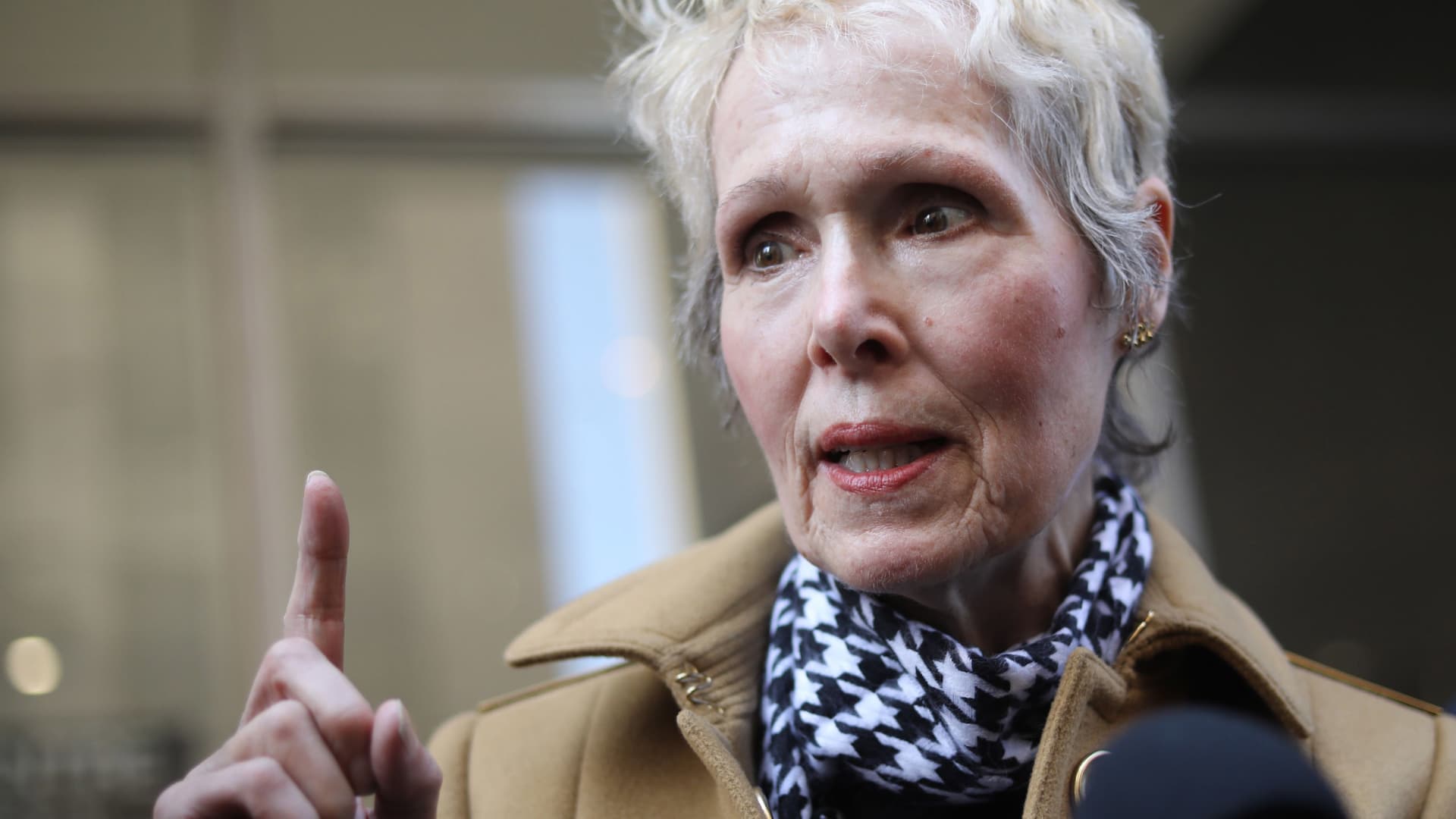A federal judge on Thursday said he will allow lawyers for Donald Trump to question his rape accuser, the writer E. Jean Carroll, under oath about the funding of her lawsuit provided by LinkedIn co-founder and major Democratic donor Reid Hoffman.
But Judge Lewis Kaplan rejected a related request by Trump’s legal team to delay by one month the start of his civil trial on April 25 in U.S. District Court in Manhattan.
Carroll’s lawsuit claims Trump raped her in the mid-1990s in the dressing room of the Bergdorf Goodman department store after a chance encounter, and that he defamed her in the way he denied her allegations when she went public with them when he was president.
Kaplan’s rulings came hours after Trump’s lawyers in a court filing accused Carroll’s attorneys of deliberately failing for months to disclose that Hoffman had funded her case against the former president. Carroll had testified in an October deposition that no one else was paying her legal fees and that she was unclear about who was covering case expenses.
“The question whether and when plaintiff [Carroll] or her counsel have obtained financial support in this action has nothing directly to do with the ultimate merits of the case,” Kaplan wrote in his order.
But, he added, “Although I do not now decide the question, it might perhaps prove relevant to the question of the plaintiff’s credibility, in view of the deposition testimony.”
The judge said he would allow “a brief and carefully circumscribed examination of that narrow question” of Carroll’s knowledge of Hoffman’s assistance. Kaplan said he would later determine whether the issue could be raised at the upcoming trial.
Kaplan said Trump’s lawyers could depose Carroll by next Wednesday for no longer than 60 minutes unless the judge agrees to extend it.
Trump’s lawyers Joseph Tacopina and Alina Habba in their letter earlier to Kaplan on Thursday said that on Monday they received a letter from Carroll’s team stating that their client “now recalls that at some point her counsel secured additional funding from a nonprofit organization to offset certain expenses and legal fees.”
Trump’s lawyers said that on Wednesday, Carroll’s attorneys disclosed that Hoffman was the “primary backer” of that nonprofit group, American Future Republic.
The billionaire Hoffman has spent millions of dollars backing Democrats in congressional races and reportedly funding efforts to oppose Trump in elections — including the 2024 presidential race in which he is currently leading the GOP primary field.
Dmitri Mehlhorn, one of Hoffman’s philanthropic advisors, told CNBC that since 2017 they have provided third-party funding to legal efforts that aim to “protect our citizens from violent threats.”
In those instances, “we have not met the plaintiffs, we do not decide who the organization chooses to support and the clients generally do not know our identity,” Mehlhorn said in an emailed statement.
In Carroll’s case, “our particular grant was made before Ms. Carroll filed suit and we had no prior knowledge that our funding would go to support her in particular,” he said.
It was unclear how much money was provided for Carroll’s litigation.
In her deposition, Carroll noted that her suit was a contingency case, meaning her attorneys only get paid if she wins the case.
But Tacopina and Habba wrote that the revelation “raises significant concerns as to Plaintiff’s bias and motive” in filing the suit.
Their letter asked Kaplan to partially reopen the evidence-sharing stage of the case, known as the discovery period.
In addition to requesting a month delay in the start of the trial, they also Kaplan to instruct the jury to note Carroll’s “willful defiance of her discovery obligations.” Kaplan in his ruling later Thursday said he would rule on that instruction request during the trial.
“The proposition that Plaintiff has suddenly ‘recollected’ the source of her funding for this high-profile litigation — which has spanned four years, spawned two separate actions, and been before numerous state, federal, and appellate courts — is not only preposterous, it is demonstrably false,” Trump’s lawyers wrote.
In a separate letter to the judge Thursday, Carroll’s lawyer Roberta Kaplan slammed the efforts to disrupt the trial as “baseless.”
Carroll last week “recollected additional information” related to the exchange from her deposition while preparing for the trial, her lawyer wrote.
Kaplan said she “promptly disclosed to Trump’s counsel that, while Carroll stands by her testimony about this being a contingency fee case, she now recalls that her counsel at some point secured additional funding from a nonprofit organization to cover certain expenses and fees.”
That funding came in September 2020, nearly a year after Carroll filed a complaint against Trump in state court, her lawyer noted.
The plaintiff’s lawyers told Trump’s team this week that Carroll “has never met and has never been party to any communications (written or oral) with anyone associated with the nonprofit.” They also proposed a compromise to allow Carroll to be cross-examined about the funding.
“But apparently, that was not enough,” Carroll’s lawyer said.
Carroll’s team also challenged Trump’s lawyers’ requests for last-minute changes to the trial schedule.
“It is, of course, facially absurd for Trump to insist that Reid Hoffman, who has never met or communicated with Carroll, possesses evidence bearing on the truth or falsity of Carroll’s battery and defamation claims,” they wrote.





